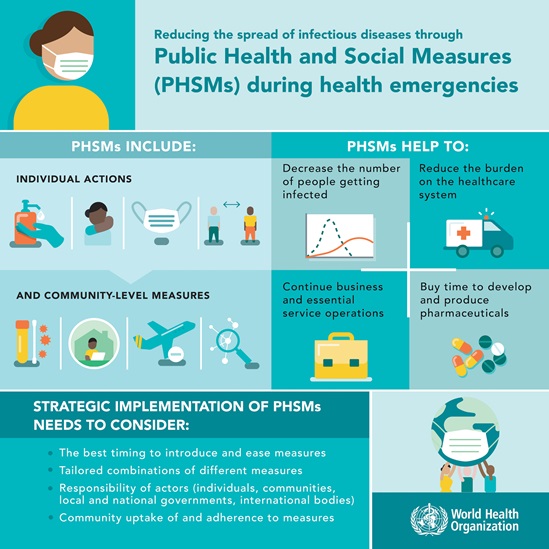Measuring the effectiveness and impact of public health and social measures
Public health and social measures (PHSM) refer to non-pharmaceutical interventions implemented by individuals, communities and governments to protect the health and well-being of communities affected by health emergencies. PHSM reduce the risk and scale of transmission of infectious diseases by reducing transmission-relevant exposures and/or making them safer. Examples of PHSM include hand washing, mask-wearing, physical distancing, school and business measures, modifications of mass gatherings and international travel and trade measures.
PHSM are often the first and sometimes the only intervention available at the onset of an outbreak when effective vaccines and therapeutics are not (yet) available or equitably distributed. PHSM play a critical role throughout the different stages of health emergencies and act in concert with medical countermeasures.
Recent health emergencies revealed, however, that individuals and communities experienced unintended negative consequences of PHSM (intervention burden) above and beyond the burden of health and health inequities by COVID-19 itself. This intervention burden includes unemployment, interrupted education, domestic violence and slowing economic productivity. People living in vulnerable conditions disproportionately experienced this intervention burden and hence highlighted the critical importance of social protection policies and other mitigation measures.
The WHO PHSM initiative on measuring the effectiveness and impact of public health and social measures (PHSM) during health emergencies aims to:
- accelerate multidisciplinary, multisectoral research on the effectiveness of PHSM, unintended negative consequences and implementation strategies;
- strengthen evidence-informed and context-specific PHSM decision-making; and
- expand the effective and equitable implementation of PHSM alongside medical countermeasures in health emergency preparedness and response for emerging and re-emerging infectious hazards.


















